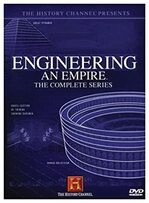History of STEM
(A History of Scientific Thought & Discovery)
STEM History Resources
#scienceexperiments #science #scienceexperiment #physics #scienceforkids #scienceisfun #crazychemistry #inventions #crazyscience #sciencehistory #makingsciencecomealive #historyscience
Video Channels:
Crash Course - History of Science PreviewFor as long as Hank has hosted Crash Course, he's wanted to host a series about the history of science. We've been asking big questions for a really long time and we've all wanted to explore how we've sought to answer those questions through the centuries. Questions like, "What is stuff?" and "Where are we?" have inspired people all over the world to investigate. So lets dive in and see how we, as a people, have tried to figure this stuff out.
Crash Course - History of Science
|
Crash Course Kids Preview!Welcome to Crash Course Kids! We are extremely excited to announce this new channel from the creators of Crash Course. We'll be talking about 5th Grade Science to start, then adding in more subjects as the channel grows. We're so happy to have you along for the ride with us and can't wait to get started!
Crash Course Kids - Science with a side of Awesome
|
Audiobooks:
THE SCIENCE HISTORY OF THE UNIVERSE: PHYSICS AND ELECTRICITY - FULL AudioBook | GreatestAudioBooks
The Theory of Everything by Stephen Hawkins | Audiobook Part
|
History of Science AudiobookTheory Of Relativity - Audiobook by Albert Einstein
THEORY OF RELATIVITY By Albert Einstein Audiobook read by LibriVox Volunteers
|
Science Experiments:
12 AMAZING EXPERIMENTSAmazing Science Experiments to Try at Home
Science fair projects ideas and fun homeschool experiments. Make an AA battery electric motor, Magnetic slime with water, glue and iron. Use cleaning products like bleach and vinegar for cool science tricks. Dissolve an egg shell, and make your drawings float on water! Subscribe here: https://www.youtube.com/subscription_...
|
20 Amazing Science Experiments and Optical Illusions! Compilation
25 COOLEST Science Experiments You Can Do at Home for Kids
|
Timeline Resources:
Amazing Site: The Owl TeacherTimelines | History For Kids | Periwinkle
Timelines | History For Kids | Periwinkle Watch our other videos: English Stories for Kids: https://www.youtube.com/playlist?list... English Poems for Kids: https://www.youtube.com/playlist?list... English Grammar for Kids: https://www.youtube.com/playlist?list... Hindi Stories: https://www.youtube.com/playlist?list... Science Videos: https://www.youtube.com/playlist?list... For more such videos on English Stories, English Grammar, English Stories, Poem & Rhymes, Hindi Stories and Poems, Maths, Environmental Studies and Science @ https://www.youtube.com/PeriwinkleKids
Timeline Sites: |
Clarendon Learning - Timelines for kids - A comprehensive overview of timelines for k-6 studentsTimelines for kids - A comprehensive overview of timelines for k-6 students. Learn all there is to know about timelines and how to create a timeline following 5 simple steps. Use this intro video with our timeline lesson plan found on our website here: https://www.clarendonlearning.org/les...
Teaching Independent Learners - Timelines Introduction |
Organizations & Journals:
Science History InstituteWelcome to the Science History Institute
The Science History Institute collects and shares the stories of innovators and of discoveries that shape our lives. We preserve and interpret the history of chemistry, chemical engineering, and the life sciences. Headquartered in Philadelphia, with offices in California and Europe, the Institute houses an archive and a library for historians and researchers, a fellowship program for visiting scholars from around the globe, a community of.. |
|







